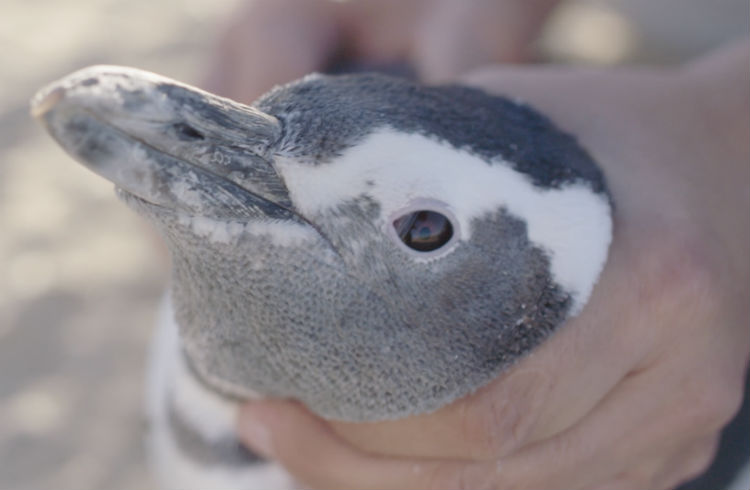World Nomads Supports the "Green Oscar" Winner
Watch this video about the work of Dr Borboroglu and the Global Penguin Society, filmed by World Nomads
 Photo © World Nomads/Sean Riley
Photo © World Nomads/Sean Riley
Argentinian marine biologist Dr. Pablo Garcia Borboroglu has been named the winner of the 2018 gold award from the Whitley Fund for Nature, an award so prestigious among conservationists it’s often called the “green Oscar”.
Dr. Borboroglu is the founder of the Global Penguin Society (GPS), the world’s first coalition for the protection of penguins.
One of GPS’s main projects has been to protect and maintain a colony of Magellanic penguins near the popular Patagonian beach town of Puerto Madryn.
The success of the project is partly as a result of donations made by World Nomads travelers, who raised US$20,000.
“We were filming with Pablo in Patagonia when he told us he was going to get this amazing award, but we have had to keep it secret until now,” said Sean O’Reilly, Head of Video at World Nomads.
World Nomads participates in The Footprints Network which facilitates the raising of micro-donations at point-of-sale and directs them, at no cost, to community-based projects run by verified NGOs.
“We know our customers share our belief in giving back. Footprints
TO LEARN MORE ABOUT WORLD NOMADS, THE FOOTPRINTS NETWORK AND THE CONCEPT OF GIVING BACK THROUGH MICRO-DONATIONS, CONTACT Phil.Sylvester@worldnomads.com.
Project Background
Global Penguin Society is a grassroots, non-profit based in Puerto Madryn, Argentina which is supported in its efforts by the Wildlife Conservation Network. GPS works on the conservation of all 18 penguin species worldwide. This project aims to protect the Magellanic species, which lives in GPS’ backyard and home turf.
Shy and small, Magellanic penguins live in Patagonia, where they were named after the Portuguese explorer whose crew spotted the small striped birds in 1520. The project will enable scientists to protect a newly-established penguin colony in Pedral, a wildlife preserve just east of the popular beach town of Puerto Madryn. This reserve is also home to sea lions, elephant seals, rheas, and guanacos – extending the protection to other important wildlife in Argentina.
In 2008, GPS had the privilege of watching an extremely rare event: the birth of a new penguin colony. After years of conservation and protection measures, penguins finally began arriving on the beaches of Pedral. The fledgling colony grew from six penguin pairs in 2008 to more than 2,000 pairs today. This is a wildlife conservation success story!
Despite the success of this colony, Magellanic penguins aren’t out of the woods – they are still threatened by the effects of climate change, which has displaced the fish that they need to survive. These tiny birds – only 45cm (18 inches) tall – now have to swim an extra 50 miles (80km) to forage for anchovies, squid, and crustaceans. This makes life hard for these small penguins and means penguin parents take much longer to return to the nest where an incubating mate or baby penguin chick is waiting for food. Having to swim longer distances for food also threatens their long-term survival.
GPS is working hard with local environmental authorities to maintain a safe nesting and breeding space for the penguins so they can live and thrive. With your help, we can ensure that these penguins, and their entire species, have a future.
No Comments